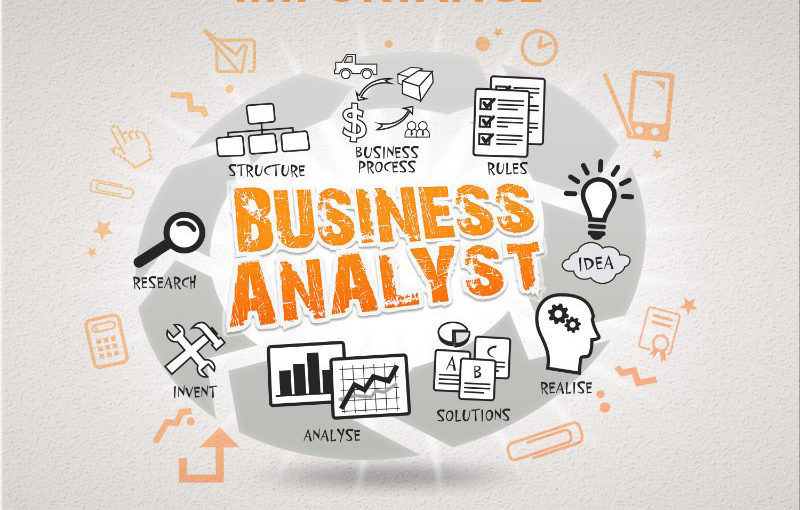
In today’s data-driven business environment, the role of a business analyst (BA) has become increasingly crucial. Business analysts are responsible for bridging the gap between IT and business teams, ensuring that organizational processes align with strategic goals. As the demand for skilled business analysts grows, so does the importance of professional certifications. These certifications validate a BA’s skills, knowledge, and expertise, making them more competitive in the job market. This article explores some of the top business analyst certifications available today, their benefits, and how they can boost your career.
Why Pursue a Business Analyst Certification?
- Validation of Skills: Certifications provide formal recognition of your skills and knowledge, demonstrating to employers that you have met industry standards.
- Career Advancement: Certified professionals often have better job prospects, higher earning potential, and more opportunities for advancement.
- Industry Recognition: Certifications from reputable organizations are globally recognized, enhancing your credibility and professional reputation.
- Continuous Learning: Certification programs often require ongoing education, ensuring that you stay current with industry trends and best practices.
Top Business Analyst Certifications
1. Certified Business Analysis Professional (CBAP)
Offered by: International Institute of Business Analysis (IIBA)
Overview: The CBAP is one of the most respected certifications in the field. It is designed for experienced business analysts who have extensive knowledge of business analysis practices.
Requirements:
- Minimum of 7,500 hours of business analysis work experience in the last 10 years.
- At least 900 hours in four of the six BABOK (Business Analysis Body of Knowledge) Guide knowledge areas.
- A minimum of 35 hours of professional development in the past four years.
- Two references from a career manager, client, or CBAP recipient.
Benefits: Validates your expertise in business analysis, enhances your marketability, and provides a significant salary boost.
2. Certified Professional for Requirements Engineering (CPRE)
Offered by: International Requirements Engineering Board (IREB)
Overview: The CPRE certification focuses on the requirements engineering aspect of business analysis. It is ideal for professionals who specialize in eliciting, documenting, and managing requirements.
Levels: The CPRE certification is structured in three levels:
- Foundation Level: Basic knowledge of requirements engineering.
- Advanced Level: In-depth knowledge of specific aspects of requirements engineering.
- Expert Level: Comprehensive expertise and professional experience in requirements engineering.
Benefits: Enhances your understanding of requirements engineering processes, improves your ability to manage complex projects, and increases your employability in specialized roles.
3. PMI Professional in Business Analysis (PMI-PBA)
Offered by: Project Management Institute (PMI)
Overview: The PMI-PBA certification is designed for professionals who perform business analysis on projects and programs. It emphasizes the importance of business analysis in project management.
Requirements:
- Secondary degree (high school diploma, associate’s degree, or global equivalent).
- 7,500 hours of business analysis experience.
- 35 contact hours of education in business analysis.
Or
- Bachelor’s degree or global equivalent.
- 4,500 hours of business analysis experience.
- 35 contact hours of education in business analysis.
Benefits: Integrates business analysis with project management, increases your value to employers, and opens up new career opportunities in both fields.
4. Certified Business Analysis Professional (CBAP)
Offered by: International Institute of Business Analysis (IIBA)
Overview: The CBAP certification is for individuals with extensive business analysis experience. It covers a broad range of knowledge areas and practices outlined in the BABOK Guide.
Requirements:
- 7,500 hours of business analysis work experience in the last 10 years.
- 900 hours in four of the six BABOK knowledge areas.
- 35 hours of professional development in the past four years.
- Two references from a career manager, client, or CBAP recipient.
Benefits: Recognized globally as a benchmark for professional competence in business analysis, it can significantly enhance your career prospects and earning potential.
Conclusion
Pursuing a business analyst certification can be a game-changer for your career. It not only validates your skills and knowledge but also demonstrates your commitment to professional growth. With numerous certifications available, it’s essential to choose one that aligns with your career goals and experience level. Whether you’re a seasoned professional or just starting, obtaining a business analyst certification can open doors to new opportunities, increase your earning potential, and position you as a leader in the field.
By investing in a business analyst certification, you are taking a significant step towards professional excellence and career success. Choose the certification that best fits your career path and start your journey towards becoming a certified business analyst today.







